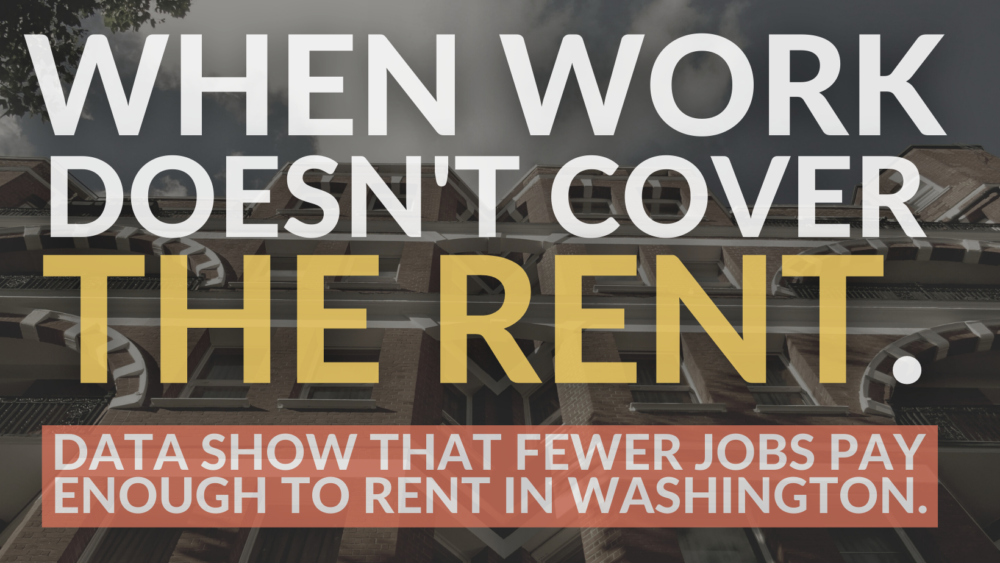
Renters often expect increases when they renew their leases. Unfortunately, their wages haven’t increased in at the same rate. EOI’s new dataset shows that since the pandemic, fewer jobs pay enough for workers to be able to rent in Washington.
According to the data, the proportion of jobs with a median wage sufficient to afford rental housing in Washington has declined since 2010.*
At that time, 47% of total employment in Washington was in occupations with a median wage sufficient to afford median rent for 2-bedroom housing. As of 2021, though, that was the case for just 36% of jobs.
It’s Getting Harder to Rent in Washington
Among the state’s five most populous counties, King and Snohomish County have the least affordable rents. Just 27% of total employment in the Seattle-Tacoma-Bellevue metro area is in occupations with a median wage that would allow a worker to rent a 2-bedroom apartment. And while it’s easy to assume that this is a Seattle-specific problem, renting is getting harder across the entire state. Cities like Yakima, Bellingham, and Pullman are experiencing a rental squeeze. Workers need to put in more hours to afford the same amount of housing they’ve had for years.
Pierce and Spokane County are the most affordable of the group; at, respectively, 46% and 45% of total employment in their metro areas in occupations with a median wage sufficient to make 2-bedroom rent affordable. But that still means that more than half of people are working in jobs which can’t keep up.
A system that expects workers to put in their hours without the promise of affordable housing is not a system that works. We need to unburden workers by increasing wages, decreasing costs, and reigning in the cost of housing.
*Affordable is defined as monthly rent less than or equal to 30% of monthly income for a full-time worker.

More To Read
August 10, 2021
New State Programs May Ease a Short-Term Evictions Crisis, but Steep Rent Hikes Spell Trouble
State and local lawmakers must fashion new policies to reshape our housing market
November 20, 2020
We Can Invest in Us
Progressive Revenue to Advance Racial Equity
